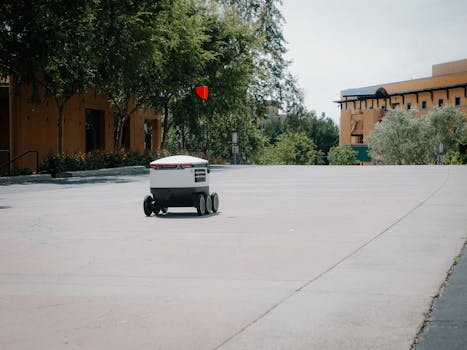
Smart Cities: Urban Trends for 2025
Smart Cities are revolutionizing the way we live, work, and interact with our urban environments. As we look to the future, it’s clear that technology will play an increasingly important role in shaping our cities. In this article, we’ll explore the latest trends and innovations in smart cities, from sustainable energy to intelligent transportation systems.
Introduction to Smart Cities
A smart city is a urban area that uses technology to improve the quality of life for its citizens. This can include everything from smart energy grids to intelligent transportation systems. The goal of a smart city is to create a more sustainable, efficient, and livable environment for everyone.
Urban Trends for 2025
So, what can we expect from smart cities in 2025? Here are some of the top trends and innovations to look out for:
- Sustainable Energy: Cities will continue to invest in renewable energy sources, such as solar and wind power, to reduce their carbon footprint.
- Intelligent Transportation Systems: Smart traffic management systems will become more prevalent, using real-time data to reduce congestion and improve air quality.
- Smart Buildings: Buildings will be designed with energy efficiency in mind, using smart materials and technologies to reduce energy consumption.
- Urban Agriculture: Cities will invest in urban agriculture, using hydroponics and other methods to grow fresh produce and reduce reliance on industrial agriculture.
- Waste Management: Smart waste management systems will use sensors and data analytics to optimize waste collection and reduce waste sent to landfills.
Case Studies: Smart Cities in Action
Let’s take a look at some examples of smart cities in action:
- Barcelona, Spain: Barcelona has implemented a smart city platform that integrates data from various sources to improve traffic management, waste collection, and energy efficiency.
- Singapore: Singapore has launched a smart nation initiative, which includes a range of initiatives such as smart transportation systems, smart buildings, and urban agriculture.
- Copenhagen, Denmark: Copenhagen has set a goal of becoming carbon neutral by 2025, and is using smart city technologies such as district heating and smart grids to achieve this goal.
Conclusion
Smart cities are the future of urban living, and it’s exciting to think about the possibilities that technology can bring. From sustainable energy to intelligent transportation systems, there are many innovative solutions being developed to improve the quality of life for citizens. As we look to 2025, it’s clear that smart cities will continue to play an important role in shaping our urban environments.




